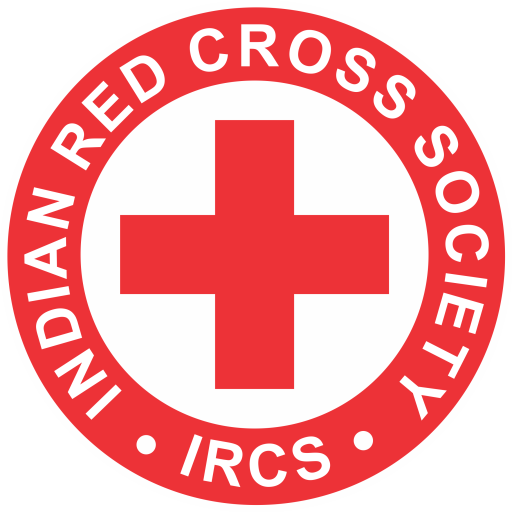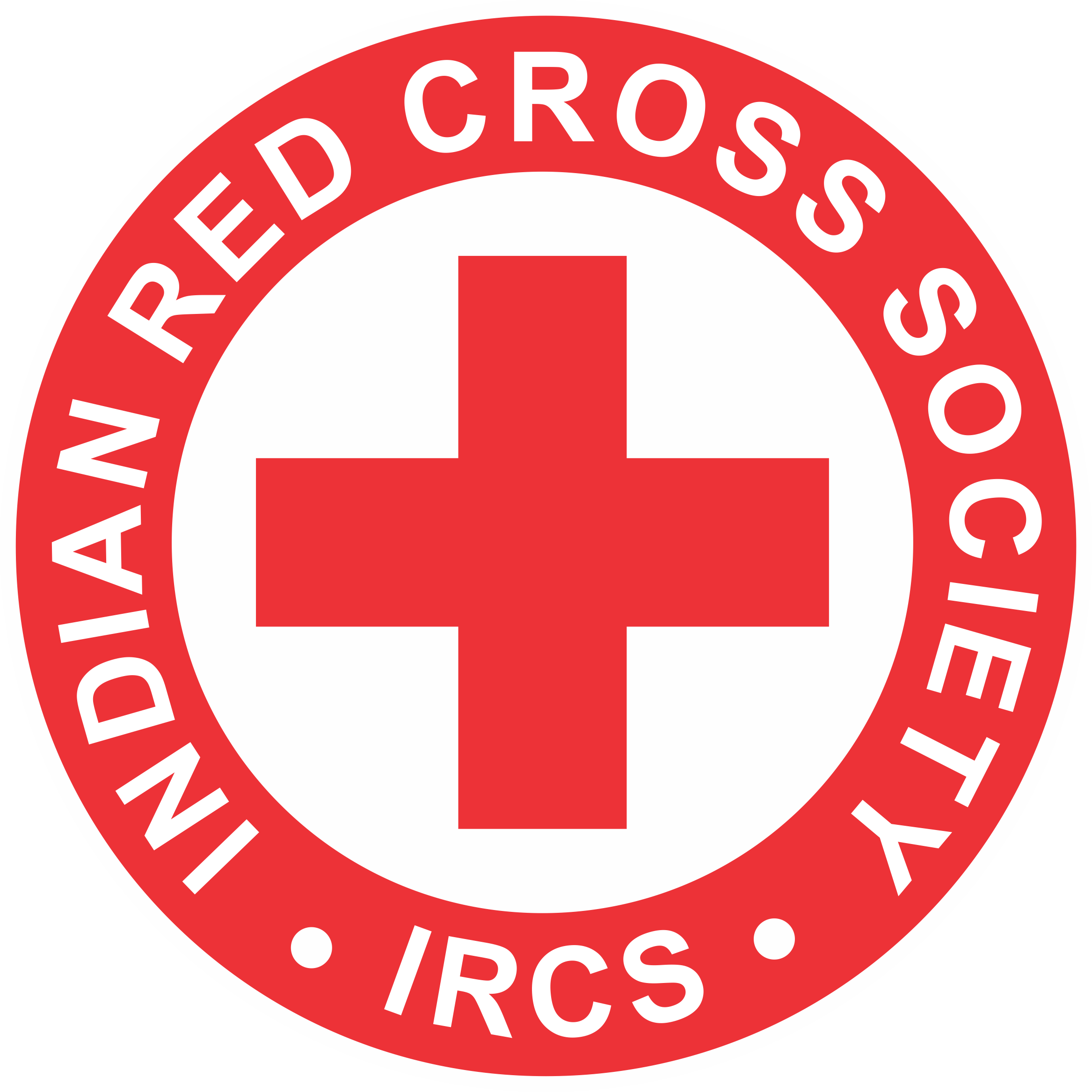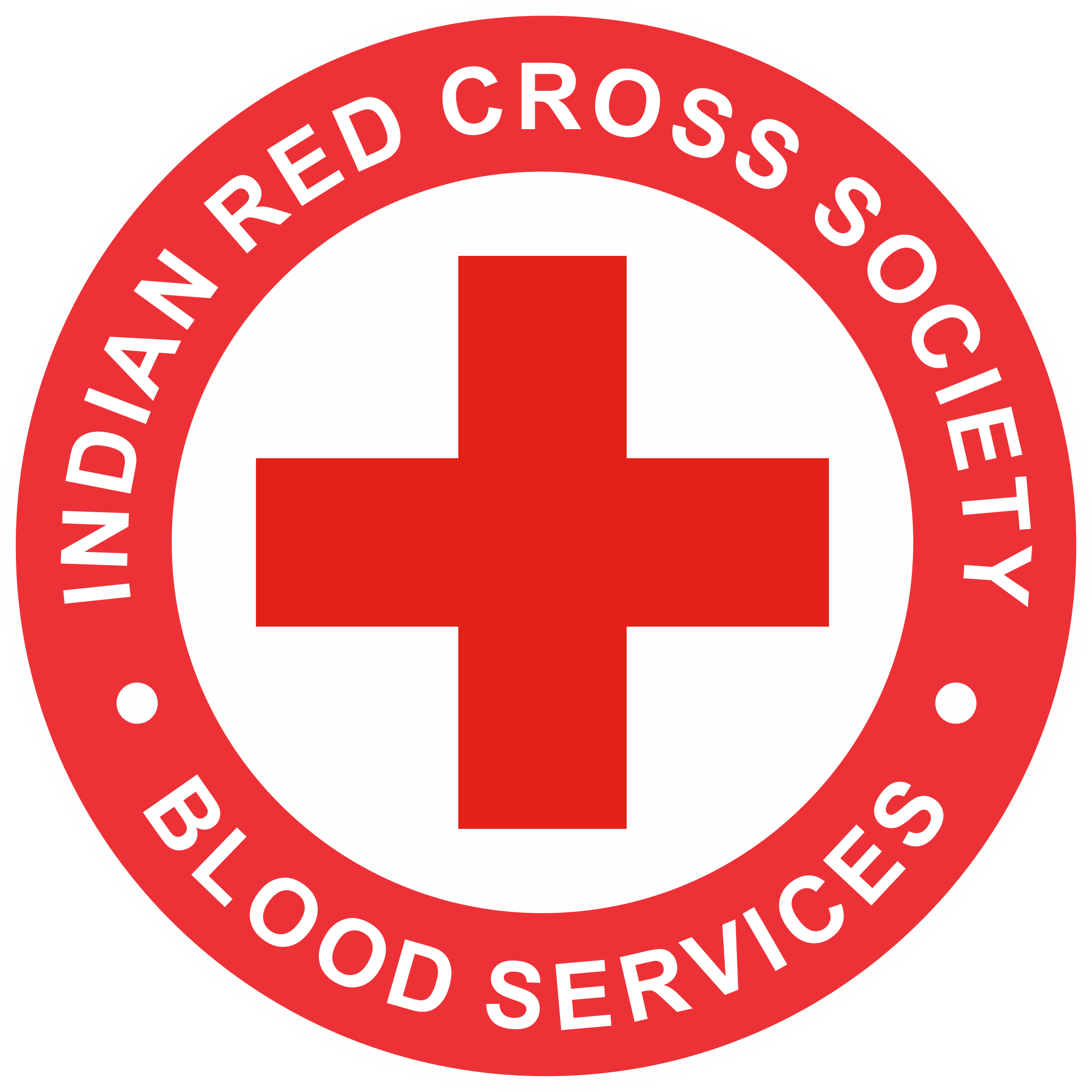For technician on duty at IRCS
Blood Centre, NHQ
011-23711551,
011-23359338
- IRCS
- Our Programs and Activities
- Disaster Management
Disaster Management
Disaster Management
Emergency Response
IRCS tackles several emergencies across the country, both manmade & natural in which our dedicated teams worked tirelessly to provide:
Shelter: Safe and secure temporary housing for displaced families.
Food and Water: Nutritious meals and clean drinking water.
Sanitation: Hygienic facilities to prevent disease outbreaks.
Health Services: Medical care and support for those in need.
Building Capacity
Red Cross work doesn’t stop at emergency response. We’re also dedicated to making communities stronger and more resilient. Here’s how we did it:
Disaster Preparedness Training: Conducted sessions to help communities understand and prepare for potential disasters.
Disaster Preparedness Training: Conducted sessions to help communities understand and prepare for potential disasters.
Community-Based First Aid: Trained individuals to provide immediate care in emergencies, saving lives before professional help arrives.
SERV Scale Up 2019
It is proposed to build communities’ resilience through upscaling of SERV on a pan India basis through the following approach:
Master Trainers
- Every state should have at least 01 Master Trainer.
- Training of candidates nominated by state branches will be conducted by the National HQ.
- Training may be held at any location selected by NHQ.
- At least one Master Trainer should be present in each state.
Eligibility:
- Age: 20–50 years
- Minimum Qualification: Graduate
- Professionals: Medical Doctors / Nurses / Lay Lecturers
- Training Duration: 6 days
- To become a Master Trainer, the candidate must score above 74% in the 6-day training.
- Click here for List of SERV Master Trainers
Instructors
- Each district to have at least 2 SERV Instructors.
- Instructor training will be conducted for up to 10 districts, with 2 trainees from each district (total up to 20 candidates).
- Training Duration: 5 days
- Assessment on the last day by External Master Trainers sent by NHQ.
- Only instructors assessed and cleared by NHQ Master Trainers will be eligible to train volunteers.
Eligibility:
- Age: 20–50 years
- Minimum Qualification: 12th pass
- To qualify as Instructor, the candidate must score above 60% in the 5-day training.
Volunteers
- Each Instructor will train 1000 volunteers in batches of 30 volunteers (total 33 batches per district).
- Focus on both community and Youth Red Cross (YRC) volunteers through college enrolment.
- College premises can be used as training venues.
- Training can be conducted in half-day sessions to suit student schedules.
- On the last day of volunteer training, one Master Trainer from the state or a neighbouring state must be present to ensure proper assessment.
- Only volunteers who demonstrate the required knowledge and skill in first aid will be certified.
Eligibility:
- Age: 18–40 years
- Minimum Qualification: 10th pass
- Training Duration: 3 days
Trainers’ Responsibilities
- Medical Doctors / Nurses / Lay Lecturers will be trained as SERV Master Trainers.
- Only Master Trainers certified by IRCS NHQ are eligible to conduct trainings.
- Master Trainers will certify only those volunteers who acquire sufficient first aid skills and knowledge.
- Master Trainers can also train Instructors.
- When Master Trainers train Instructors, External Master Trainers from other states will be deputed by NHQ for final assessment.
- If Instructors are training Volunteers, a Master Trainer from the state must be present on the final day to validate the training and certification.
Curriculum Update
- Master Trainers ToT with 04 days of First Aid Training and 02 days of Disaster concepts [Revised]
- Instructors with 03 days of First Aid training and 02 days of DM Concepts [Revised]
- Volunteers’ training with 02 days of First Aid and 01 Day of DM Concepts
- Indian First Aid Manual – 2016 (7th edition)
First Medical Responders Course Modulesd
Module One: Introductory Module
1. Introduction to the Concept of First Medical Responders
2. Objective of the Training Program
3. Pre and Post Test Questionnaire: Why and How?
4. RCRC Movement and Relevance of FMR in the Movement
Module Two: Emergency First Aid
1. Principles and Practices of First Aid
2. Assessment in First Aid
3. Structure and Function of Body
4. Basic Life Support (Resuscitation and CPR)
5. First Aid in Emergencies
6. First Aid Kit and Use of Materials
7. Triage
8. Safe Handling and Transportation of Patient
Module Three: Public Health in Emergencies
1. Introduction to Public Health in Emergencies
2. Communicable Diseases in Emergencies/Epidemic Control
a. Vector Borne Diseases
b. Water Borne Diseases
c. Air Borne Diseases
d. STI including HIV and other Sexual and Reproductive Health Issues
3. Emergency Health Assessment – What It Is, Data Collection
4. Food Security and Nutrition in Emergencies
5. Health in Recovery Programming
Module Four: Water, Sanitation and Hygiene Promotion
1. Emergency Water Supply
a. Introduction to Water Supply
b. Water Supply Components
c. WATSAN Emergency Response Tool
2. Household Water Treatment
a. Why Household Water Treatment and Safe Storage?
b. Methods of Water Treatment
c. Safe Storage
d. Training
e. Follow-Up Training
3. Emergency Sanitation
a. Excreta Disposal
b. Solid Waste Management
c. Wastewater Management (Drainage)
d. Vector Control
4. Hygiene Promotion in Emergency
a. Why Do We Need Hygiene Promotion?
b. Selection and Distribution of Hygiene Kits
c. How to Do Hygiene Promotion in Emergency?
d. Hygiene Promotion Box
Module Five: Psychosocial Support
1. Introduction to Psychosocial Support in RCRC Movement
a. Definition and Need
b. Contextualization of Services
2. Basics of Providing Psychosocial Support Services
a. Identification of Needs and Affected Populations
b. Assessment and Response
3. Immediate Phase Support by FMR
4. Community-Based Psychosocial Support
5. Psychological First Aid and Supportive Communication
6. Essentials While Providing Support
a. Who Can Provide Support
b. Helping the Helper
7. Dos and Don’ts for Volunteers
Module Six: Restoring Family Links
1. RFL Terms and Concepts
a. Tracing, Family News Services
b. RFL in Disasters and in India
2. Field Experience
a. Leh Cloudburst / Sikkim Earthquake
3. Planning RFL Activity
a. Preparation and Planning
Module Seven: Management of Dead Bodies
1. Introduction and Concept
2. Need for Dead Body Management
3. Required Documentation
4. Field Experiences
Module Eight: Crisis Management
1. Crisis Concepts: Hazard, Vulnerability, Risk, Disaster, etc.
2. Types of Crisis Situations and Response
a. Earthquake, Floods, Tsunami, Fire, Conflict, etc.
3. Needs Assessment in Emergencies
4. CFMR Roles and Responsibilities
5. Coordination Mechanisms
Module Nine: Planning, Monitoring, Reporting & Volunteer Management
1. Planning and Contingency Planning
2. Monitoring by FMR
3. Crisis Monitoring and Data Usage
4. Reporting Methods
5. Volunteer Management in Emergencies
Glimpses of Work Done by Red Cross Volunteers
Disaster Relief and Response by Indian Red Cross Bihar State and District Branches for Bihar Flood Victims – September 2019
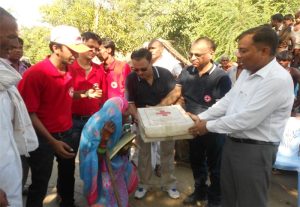
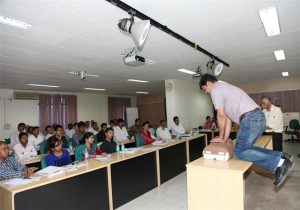
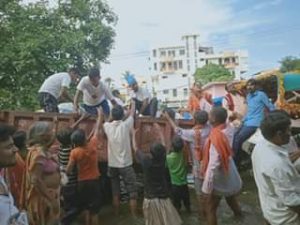
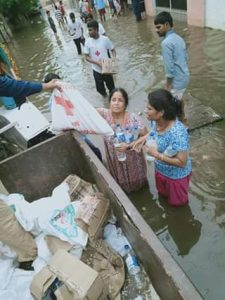
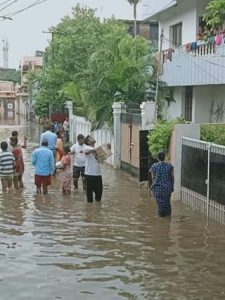
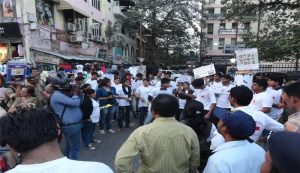
Click here for Revised Guideline for conducting First Aid and Home Nursing Training during COVID-19 Pandemic
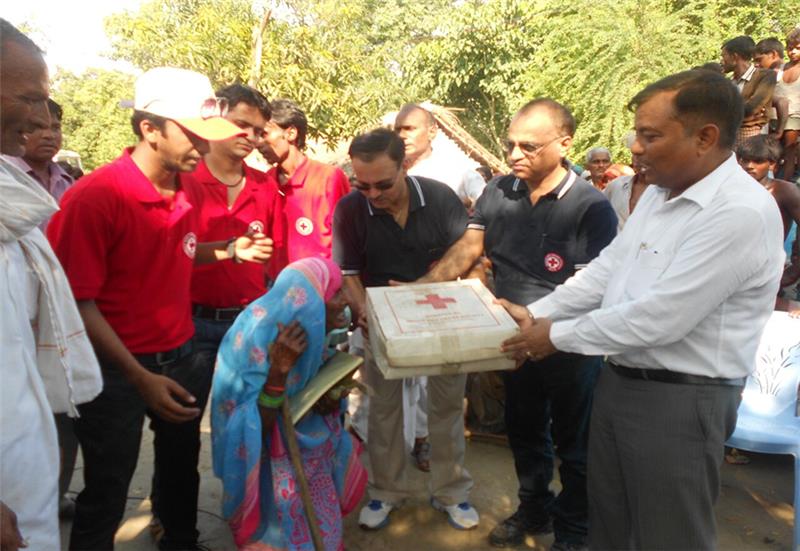
The Social and Emergency Response Volunteer (SERV) Programme is designed to build community resilience through training of the target group by Master trainers, Instructors and SERV volunteer on a pan India basis. It is envisaged that, on an average, 1000 trained SERV volunteers and 2 trained SERV instructors will be available in each district of the country and at least one Master trainer will be available in each state Red Cross branch. These SERV volunteers will in turn impart health and disaster related messages apart from leading social campaigns in the community. They will be at the fore front as first community responders in case of any disaster etc. The programme will be jointly funded by National headquarters (NHQ) and the concerned State branch in the ratio of 80:20 of the fund for each activity.
Concept of SERV:
The concept of SERV is premised upon the principles of Community-Based Disaster Risk Reduction (CBDRR). It recognizes that:
- Communities understand their problems and opportunities better than anyone else.
- Communities are more interested in understanding their problems than anyone else.
- The community is a key stakeholder for the development of the country, hence it must participate in its own development.
- Local communities are capable of initiating and sustaining their own community development.
To contribute to this aim, SERV volunteers will:
- Provide immediate relief and response to affected communities before additional support from the government and other agencies arrives.
- Reduce vulnerabilities of the communities by training them on first-aid, hygiene promotion, etc.
- Conduct vulnerability and capacity assessments of their own communities.
- Support any other identified social issues that contribute to the development of the communities.
It is envisaged that the SERVs will be trained according to prescribed modules to deliver the following:
- Act as First Responders in times of emergencies, participating in providing effective humanitarian services to the affected population to prevent and alleviate their sufferings on behalf of the IRCS.
- Sensitize the community to make them more resilient to disasters to which they are vulnerable.
- Facilitate linkages between the community and Government programs.
CONNECT& CONTRIBUTE
MORE FROM IRCS NHQ
FACILITIES & HIGHLIGHTS
IRCS STATE BRANCHES
IRCS NHQ ADDRESS
Indian Red Cross Society 1,
Red Cross Road
INDIA
New Delhi - 110001
MORE FROM IRCS....
IRCS STATE BRANCHES
IRCS NHQ ADDRESS
Indian Red Cross Society 1,
Red Cross Road
INDIA
New Delhi - 110001
-
For technician on duty at IRCS
Blood Centre, NHQ
011-23711551, 23359338
© Copyright 2025 by Indian Red Cross Society
